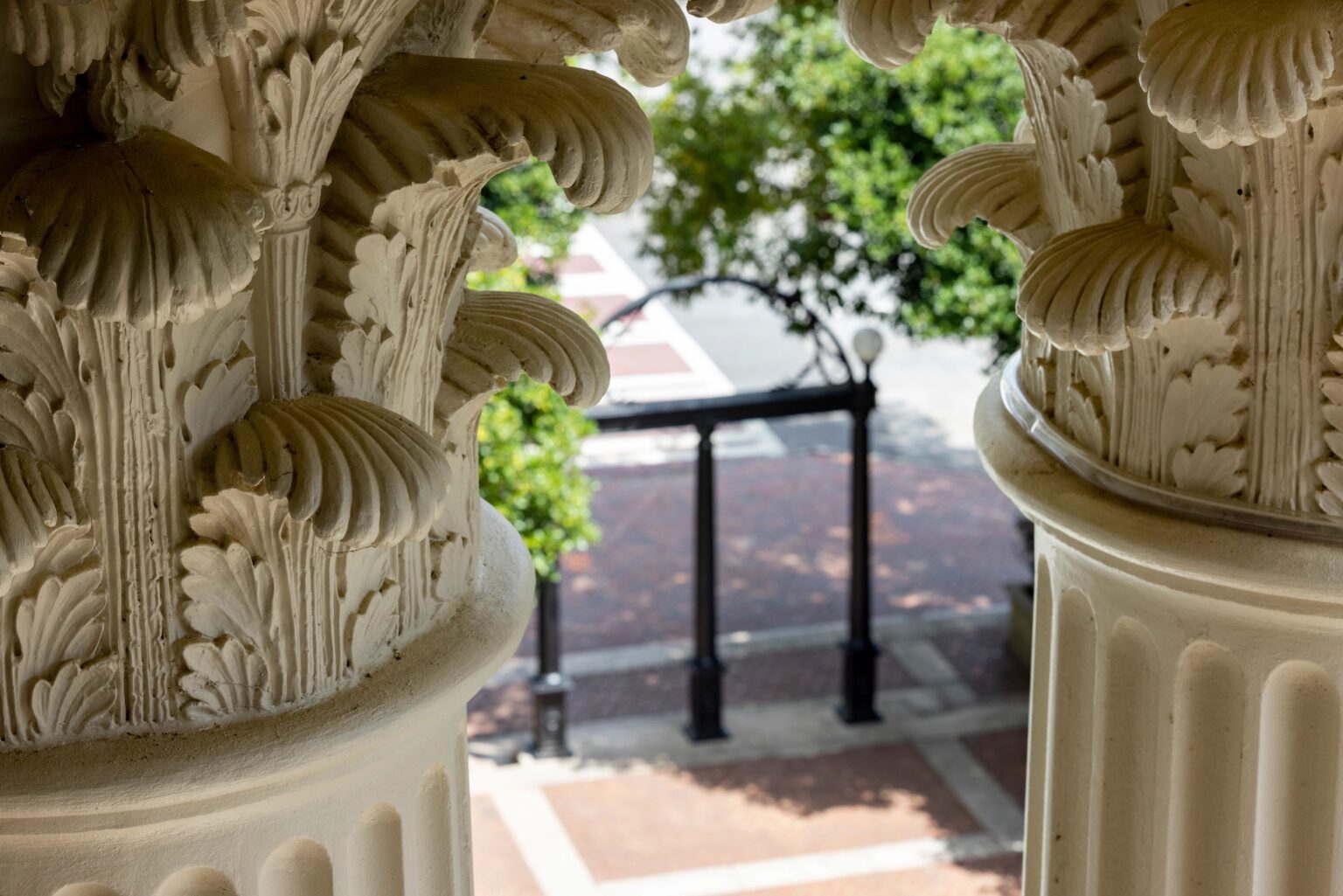"If everything works out well, it should be one of the best crops we've had in a decade," said Kathy Taylor, a UGA Extension Service scientist in Fort Valley.
That means the weather must cooperate with growers for the next five weeks or so.
Right Rain, Winter Weather

Peaches are about 80 percent water. Timely rains,
when the young fruit starts growing, helped get this year off to
a good start.
"There's plenty of water," Taylor said. "We're excited that we also had plenty of cold weather this winter."
Peach trees need at least 850 hours of temperatures below 45 degrees, called chill hours, to grow a bountiful crop.
"We've had a bumper crop of chill hours this year," Taylor said.
So far, most Georgia peach trees have had about 1,300 chill hours, the most in 19 years. And it shows.
"The buds have come on much earlier than normal," Taylor said.
Beware Jack Frost
Amid all the pretty blooms and buds, little peaches are already growing, making them susceptible to late-season frosts. "Last week's frost damaged some young fruit -- more in south Georgia because their crop comes earlier," Taylor said. "But they will still have a crop this year."
The frost only lightly thinned the crop in the rest of the state, saving the growers a little labor cost.
If frost stays away past Easter, consumers can expect to pay about the same retail prices as we paid last year.
"Prices varied last year depending on the retail source and location," Taylor said. "They were generally between $1 and $3 per pound. That may not be so relevant in Georgia. Peach growers have no control over the retail price. Produce brokers, not peach farmers, have the most influence over retail prices."
First to Market
Georgia-grown peaches could hit the national and international markets first this year, as much as seven days earlier than those grown in rival California. And that would give Georgia producers a significant economic advantage.
If Georgia peaches get to market first, growers could get about 25 cents per pound. If not, producers could see prices as low as 15 cents per pound.
"In terms of taste," Taylor said, "we will have probably very good flavor if all these weather conditions hold up well for us."






